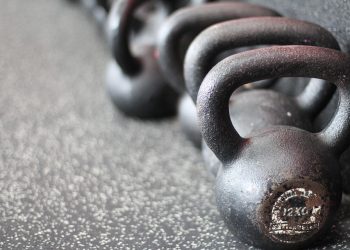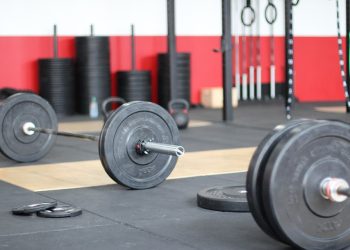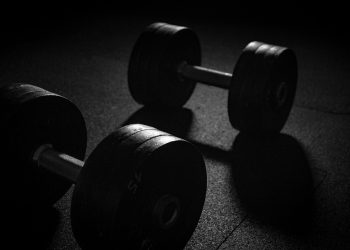Unlock Weight Loss: The Science Explained
Weight loss. It’s a topic rife with misinformation, quick-fix promises, and often, disappointment. But beneath the noise, there lies a solid foundation of scientific principles that, when understood and applied, can lead to sustainable and healthy weight management. This article aims to cut through the confusion and explore the science behind weight loss, providing you with the knowledge you need to make informed decisions about your health.
The Energy Balance Equation: Calories In vs. Calories Out
At its core, weight loss is governed by a simple principle: the energy balance equation. This equation states that weight loss occurs when you consistently burn more calories than you consume. Let’s break this down:
- Calories In: The energy you obtain from food and beverages.
- Calories Out: The energy your body uses for basic functions (breathing, circulation, etc.), physical activity, and digesting food.
When “calories in” are less than “calories out,” your body taps into its stored energy reserves (primarily fat) to make up the difference, resulting in weight loss. Conversely, when you consume more calories than you burn, the excess is stored as fat, leading to weight gain.
While the equation seems straightforward, individual factors such as genetics, hormones, and metabolic rate can influence how easily someone gains or loses weight. However, the fundamental principle remains the same.
Understanding Your Basal Metabolic Rate (BMR)
Your Basal Metabolic Rate (BMR) is the number of calories your body burns at rest to maintain essential bodily functions. It’s a crucial factor in determining your daily calorie needs. Several factors influence BMR, including:
- Age: BMR generally decreases with age.
- Sex: Men typically have a higher BMR than women due to greater muscle mass.
- Muscle Mass: Muscle burns more calories at rest than fat.
- Genetics: Genetic predispositions can influence metabolic rate.
- Hormones: Thyroid hormones play a significant role in regulating metabolism.
You can estimate your BMR using various online calculators or by consulting with a registered dietitian or healthcare professional. Knowing your BMR provides a starting point for calculating your daily calorie needs for weight loss.
The Role of Macronutrients: Protein, Carbohydrates, and Fats
The food we eat is composed of macronutrients: protein, carbohydrates, and fats. Each macronutrient plays a different role in weight management.
Protein: The Satiety Superstar
Protein is essential for building and repairing tissues, producing enzymes and hormones, and supporting immune function. It also plays a vital role in weight loss due to its high satiety value.
- Increased Satiety: Protein promotes feelings of fullness, helping you eat fewer calories.
- Muscle Preservation: Consuming adequate protein helps preserve lean muscle mass during weight loss.
- Thermic Effect of Food (TEF): Protein has a higher TEF than carbohydrates or fats, meaning your body burns more calories digesting it.
Good sources of protein include lean meats, poultry, fish, eggs, dairy products, legumes, and tofu.
Carbohydrates: Fueling Your Body
Carbohydrates are the body’s primary source of energy. When choosing carbohydrates, focus on complex carbohydrates found in whole grains, fruits, and vegetables, rather than refined carbohydrates found in processed foods and sugary drinks.
- Complex Carbohydrates: Provide sustained energy and are rich in fiber.
- Fiber: Promotes satiety, regulates blood sugar levels, and supports digestive health.
- Refined Carbohydrates: Can lead to rapid spikes and crashes in blood sugar, contributing to hunger and cravings.
Examples of healthy carbohydrate sources include brown rice, quinoa, oats, sweet potatoes, and fruits and vegetables.
Fats: Essential for Health
Fats are essential for hormone production, vitamin absorption, and brain function. However, not all fats are created equal. Focus on consuming healthy fats from sources like avocados, nuts, seeds, and olive oil.
- Healthy Fats (Unsaturated Fats): Support heart health and provide essential nutrients.
- Unhealthy Fats (Saturated and Trans Fats): Can increase the risk of heart disease and other health problems.
While fats are calorie-dense, they also contribute to satiety and can be part of a healthy weight loss plan when consumed in moderation.
The Importance of Fiber
Fiber is a type of carbohydrate that the body cannot digest. It plays a crucial role in weight management by:
- Promoting Satiety: Fiber adds bulk to food, making you feel fuller for longer.
- Regulating Blood Sugar Levels: Fiber slows down the absorption of sugar, preventing spikes and crashes in blood sugar.
- Supporting Digestive Health: Fiber promotes regular bowel movements and prevents constipation.
Aim for at least 25-30 grams of fiber per day from sources like fruits, vegetables, whole grains, and legumes.
The Power of Physical Activity
Physical activity is a cornerstone of successful weight loss. It helps you burn more calories, build muscle mass, and improve overall health.
Types of Physical Activity
- Cardiovascular Exercise (Cardio): Activities that elevate your heart rate and breathing, such as running, swimming, cycling, and dancing.
- Strength Training: Activities that build muscle mass, such as weightlifting, bodyweight exercises, and resistance band training.
- NEAT (Non-Exercise Activity Thermogenesis): The energy expended for everything we do that is not sleeping, eating or sports-like exercise. This includes walking, standing, fidgeting, and other daily activities.
Benefits of Physical Activity for Weight Loss
- Increased Calorie Burn: Physical activity burns calories, contributing to a calorie deficit.
- Increased Muscle Mass: Muscle burns more calories at rest than fat, boosting your metabolism.
- Improved Insulin Sensitivity: Physical activity improves insulin sensitivity, helping your body use glucose more efficiently.
- Reduced Stress: Exercise can help reduce stress levels, which can contribute to weight gain.
Aim for at least 150 minutes of moderate-intensity aerobic activity or 75 minutes of vigorous-intensity aerobic activity per week, along with strength training exercises at least two days per week.
The Role of Sleep and Stress Management
Adequate sleep and effective stress management are often overlooked but are crucial for successful weight loss. Lack of sleep and chronic stress can disrupt hormones that regulate appetite and metabolism.
Sleep Deprivation and Weight Gain
Sleep deprivation can lead to:
- Increased Ghrelin Levels: Ghrelin is a hormone that stimulates appetite.
- Decreased Leptin Levels: Leptin is a hormone that signals fullness.
- Increased Cravings for Unhealthy Foods: Sleep-deprived individuals often crave high-calorie, processed foods.
Aim for 7-9 hours of quality sleep per night.
Stress and Weight Gain
Chronic stress can lead to:
- Increased Cortisol Levels: Cortisol is a stress hormone that can promote fat storage, particularly in the abdominal area.
- Emotional Eating: Stress can trigger emotional eating, leading to overconsumption of unhealthy foods.
Practice stress-reducing techniques such as meditation, yoga, deep breathing exercises, or spending time in nature.
Hydration: A Simple Yet Powerful Tool
Drinking enough water is essential for overall health and can also aid in weight loss.
- Increased Satiety: Drinking water before meals can help you feel fuller, leading to reduced calorie intake.
- Boosted Metabolism: Some studies suggest that drinking water can temporarily boost metabolism.
- Improved Digestion: Water helps with digestion and prevents constipation.
Aim for at least 8 glasses of water per day.
The Importance of Mindful Eating
Mindful eating involves paying attention to your hunger and fullness cues, eating slowly, and savoring each bite. It can help you break free from mindless eating habits and make more conscious food choices.
- Pay Attention to Hunger Cues: Eat when you’re truly hungry, not just because you’re bored or stressed.
- Eat Slowly and Savor Each Bite: Put down your fork between bites and focus on the taste and texture of your food.
- Minimize Distractions: Avoid eating in front of the TV or computer.
- Stop Eating When You’re Satisfied: Don’t feel obligated to finish your plate.
Sustainable Strategies for Long-Term Success
The key to sustainable weight loss is to make gradual, realistic changes to your lifestyle rather than relying on fad diets or extreme measures.
- Set Realistic Goals: Aim for a weight loss of 1-2 pounds per week.
- Make Gradual Changes: Start with small, manageable changes to your diet and exercise routine.
- Focus on Whole, Unprocessed Foods: Build your diet around fruits, vegetables, whole grains, lean protein, and healthy fats.
- Find an Exercise Routine You Enjoy: Choose activities that you find enjoyable and that you’re likely to stick with.
- Track Your Progress: Keep a food journal and track your weight to monitor your progress and identify areas for improvement.
- Seek Support: Surround yourself with supportive friends, family, or a weight loss group.
- Be Patient and Persistent: Weight loss is a journey, not a destination. There will be ups and downs along the way. Don’t get discouraged if you experience setbacks. Just keep moving forward.
Debunking Common Weight Loss Myths
The weight loss industry is full of myths and misinformation. Let’s debunk a few common ones:
- Myth: Fad diets are the best way to lose weight.
Reality: Fad diets are often unsustainable and can lead to nutrient deficiencies and yo-yo dieting. - Myth: You need to cut out all carbs to lose weight.
Reality: Complex carbohydrates are an important source of energy and fiber. - Myth: You can target fat loss in specific areas of your body.
Reality: You cannot spot reduce fat. When you lose weight, you lose it from all over your body. - Myth: Eating late at night causes weight gain.
Reality: It’s not the time of day you eat, but the total number of calories you consume that matters. - Myth: Skipping meals is a good way to save calories.
Reality: Skipping meals can lead to overeating later in the day.
Focus on evidence-based strategies and consult with a healthcare professional or registered dietitian for personalized advice.
The Importance of Consulting a Professional
Before making significant changes to your diet or exercise routine, it’s always a good idea to consult with a healthcare professional or registered dietitian. They can help you develop a personalized weight loss plan that is safe and effective for you.
A healthcare professional can assess your overall health, identify any underlying medical conditions that may be contributing to weight gain, and monitor your progress. A registered dietitian can provide guidance on healthy eating habits, meal planning, and portion control.
Conclusion
Weight loss is a complex process influenced by various factors. Understanding the science behind it empowers you to make informed decisions and adopt sustainable strategies for long-term success. By focusing on a balanced diet, regular physical activity, adequate sleep, stress management, and mindful eating, you can achieve your weight loss goals and improve your overall health and well-being. Remember that consistency and patience are key. Don’t be discouraged by setbacks, and celebrate your successes along the way. Consulting with a healthcare professional or registered dietitian can provide personalized guidance and support to help you on your weight loss journey.
Frequently Asked Questions (FAQs)
-
Q: How many calories should I eat to lose weight?
A: The number of calories you need to eat to lose weight depends on your individual factors, such as age, sex, activity level, and BMR. A general guideline is to create a calorie deficit of 500-750 calories per day to lose 1-2 pounds per week. However, it’s best to consult with a registered dietitian or healthcare professional for personalized recommendations. -
Q: What is the best diet for weight loss?
A: There is no single “best” diet for weight loss. The most effective diet is one that you can stick with long-term and that provides you with the nutrients you need to stay healthy. Focus on a balanced diet rich in fruits, vegetables, whole grains, lean protein, and healthy fats. -
Q: Is cardio or strength training better for weight loss?
A: Both cardio and strength training are beneficial for weight loss. Cardio burns calories and improves cardiovascular health, while strength training builds muscle mass, which boosts your metabolism. Ideally, you should incorporate both types of exercise into your routine. -
Q: How can I stay motivated to lose weight?
A: Staying motivated can be challenging, but here are a few tips:- Set realistic goals.
- Find an exercise routine you enjoy.
- Track your progress.
- Reward yourself for reaching milestones.
- Seek support from friends, family, or a weight loss group.
-
Q: What are some healthy snack options for weight loss?
A: Healthy snack options include:- Fruits and vegetables
- Nuts and seeds
- Yogurt
- Hard-boiled eggs
- Whole-grain crackers with hummus
-
Q: Is it possible to lose weight without exercise?
A: While it is possible to lose weight without exercise by creating a calorie deficit through diet alone, exercise offers numerous additional benefits, including improved cardiovascular health, increased muscle mass, and reduced stress. Combining diet and exercise is generally the most effective approach for sustainable weight loss. -
Q: How important is it to track my calories?
A: Tracking your calories can be a helpful tool for understanding your eating habits and ensuring you are creating a calorie deficit. It allows you to monitor your intake of macronutrients (protein, carbohydrates, and fats) and identify areas where you can make adjustments. However, calorie tracking is not necessary for everyone. Some people find it stressful or time-consuming, while others find it empowering. Explore what works best for you. -
Q: I’ve plateaued in my weight loss. What should I do?
A: Plateaus are a common part of the weight loss journey. Here are some strategies to overcome them:- Re-evaluate your calorie intake: You may need to adjust your calorie target as you lose weight.
- Increase your physical activity: Try adding more intense workouts or incorporating new activities.
- Re-examine your eating habits: Ensure you are still making healthy choices and not slipping back into old habits.
- Get enough sleep and manage stress: These factors can impact your hormones and metabolism.
- Be patient: Plateaus are often temporary. Don’t get discouraged and keep making healthy choices.
-
Q: Are there any foods I should completely avoid for weight loss?
A: While it’s not necessary to completely avoid any particular food, it’s generally a good idea to limit your intake of processed foods, sugary drinks, and unhealthy fats. These foods are often high in calories and low in nutrients, and they can contribute to weight gain. -
Q: How can I prevent weight regain after losing weight?
A: Preventing weight regain requires a long-term commitment to healthy habits. Here are some tips:- Continue to follow a balanced diet and exercise regularly.
- Monitor your weight regularly and address any weight gain promptly.
- Avoid restrictive dieting.
- Manage stress and get enough sleep.
- Seek support from friends, family, or a weight loss group.












